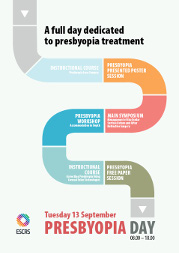Abstract for audit on outcomes of surgery for posterior polar cataract at a tertiary teaching centre
Session Details
Session Title: Paediatric Cataract Surgery
Session Date/Time: Tuesday 13/09/2016 | 08:00-10:30
Paper Time: 10:04
Venue: Hall C1
First Author: : U.Thakur UK
Co Author(s): : V. Saw
Abstract Details
Purpose:
To compare the visual outcomes and complication rates to other centres reported in the literature, and to identify risk factors and potentially propose surgical techniques that would reduce the posterior capsule tear rate.
Setting:
The reported incidence of posterior capsule rupture in Posterior Polar cataract varies between 7.1% and 31%. We wish to evaluate the surgical techniques, visual outcomes, incidence of complications and risk factors for capsular rupture in non-femtosecond posterior polar cataract surgeries at Moorfields Eye Hospital.
Methods:
Retrospective study of all patients having surgery for posterior polar cataract.758 eyes were identified on electronic records with posterior polar cataract for which they were operated between 2000 and 2015. This involved reviewing notes preop, postop and operation notes, to confirm the posterior polar cataracts, to identify intraoperative complications and preferred technique and report visual outcome. We identified 38 eyes with posterior polar cataracts
Results:
Vision: Mean Unaided distance acuity 0.57( 0.48-0.68) pre-operative compared to 3 weeks post-operative 0.74(0.64-0.84) CI 95% which showed a significant difference p=0.01 (Mann Whitney).The Scatter plot showed a positive correlation between pre-op and 3 week postop distance visual acuity.
Complications.
Posterior capsular (PC) rupture-18%(7/38), vitrectomy 10.5%(4/38), dropped nucleus – 3%(1/38) IOL in sulcus -16 % (6/38).
Other complications were cystoid macular edema 3 %(1/38),elevated IOP -5%(2/38),posterior capsular opacifiaction-8%(4/38),displaced IOL-3%(1/38),retinal tear -3%(1/38), post-operative uveitis 5%(2/38
Conclusions:
There was a PC rupture rate of 18.42% (7/38). , the PC rupture did not occur at the hydrodissection/hydrodelineation stage for the majority of cases. PC rupture occurred during polishing and removal of cortical plaque in 4/7 cases, Hydrodelineation was recorded as the preferred technique in 15.78% (6/38). A significant improvement in vision was recorded 47.36%(18/38). We are not aware of any similar previous case series from the UK. The PC rupture rate in this study was lower than 2 of the 3 previously reported case series. Femtosecond laser has been proposed, but our findings of manual hydrodelination worked well.
Financial Disclosure:
NONE





